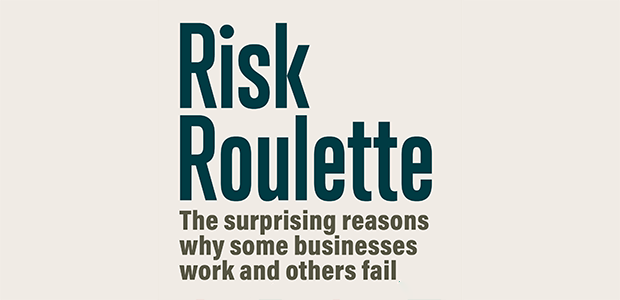
Risky Business: why understanding risk is key to startup success
“The model of the lone entrepreneur – the poor boy with a brilliant business idea who rises single-handedly from poverty; the isolated scholar scribbling brilliant ideas in a garret or country village – is largely mythological.” That was what John Kay and Sir Mervyn King, the former governor of the Bank of England, wrote in their book Radical Uncertainty.
Tom Beahon says similar. Beahon is the co-founder and chief executive of Castore, the sportswear brand and one of the most successful UK startups of the last decade. “Often there's this misconception of entrepreneurs that you have this lightbulb moment and all of a sudden the world changes,” he says.
A recent survey of Norwegian entrepreneurs found that the wealthier you are the more likely you are to start a business. It also found that you are more likely to start a business when stock market returns have been high. The reason for this, in short, was that people in these circumstances are more confident and have less to lose. They are taking less of a risk.
Yet risk-taking, startups, and progress are often seen as necessary partners. “An aversion to risk is holding Britain back,” wrote William Hague, the former leader of the Conservative party, in 2023 in The Times newspaper. This was a widespread view.
The reality is more nuanced. Startups don’t succeed due to reckless risk-taking, but a deep understanding and appreciation for risk – the upsides, the downsides, and how you can take advantage. Sometimes that advantage is that you simply have enough money to carry on with your life if the business fails. But for most people that is not the case.
One advantage for Tom Beahon was that he already failed in life. He thought the worst thing possible had already happened to him. He wanted to be a professional footballer but was told in his early 20s that he wasn’t good enough. “You realise that the sun still rises the next day,” Beahon says. “What it instilled in me was whatever I do, I need to be in control of my own destiny. Failure doesn't scare me. I've failed. The worst has happened. What scares me is not being in control.”
Powered by that freedom of thought and determination, Tom Beahon and his brother Phil have built Castore.
Phil Knight, the co-founder of Nike, was similarly unconcerned about the risk of failure. He recognised that even if Nike failed he would have learned a lot. “I’d have no money, and I’d be crushed. But I’d also have some valuable wisdom, which I could apply to the next business,” Knight wrote in Shoe Dog, his memoir. “Wisdom seemed an intangible asset, but an asset all the same, one that justified the risk.”
We often think about risk in relation to the threats a business could face. But it is more about the opportunities. Innovation, for instance, is about understanding what downside risks you are prepared to tolerate in return for the upside your product or service offers. Warren Buffet, the legendary investor, thinks that understanding risk is so important that he describes the chief executives of his businesses as the “chief risk officer”.
Successful entrepreneurs can also be risk-averse when the moment is right. They recognise when they need to protect the magic sauce of their business and turn down potential opportunities. Simon Arora built B&M into a retailer worth more than £5 billion without taking it online or spending any money on advertising. “The reason why at B&M we obsess about keeping things simple is that we don't want to get to a point where our complexity has allowed somebody else to come in and disrupt us,” Arora explains.
Andy Grove, the co-founder and former chief executive of Intel, expressed this sentiment in blunt terms – Only the Paranoid Survive. That was the title of his book on the story behind the tech giant. Intel didn’t just survive. It became one of the biggest companies in the world. That is where an understanding of risk can take you.
For more startup news, check out the other articles on the website, and subscribe to the magazine for free. Listen to The Cereal Entrepreneur podcast for more interviews with entrepreneurs and big-hitters in the startup ecosystem.

